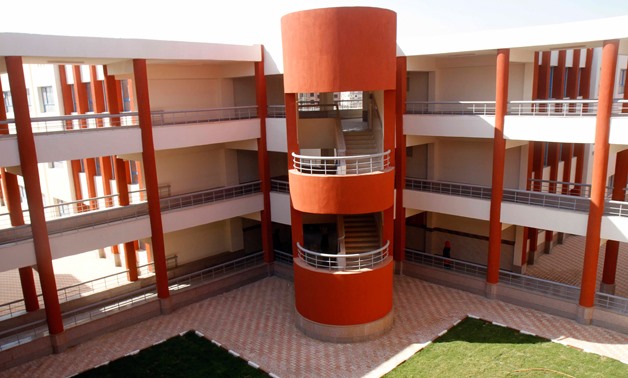
FILE - Under-construction Japanese school in Egypt - Egypt today/Mahmoud Fakhry
CAIRO – 17 September 2018: The New Administrative Capital will feature 50 schools for all categories, including four Japanese schools, an experimental school, a public school and 44 language schools.
Chairman of New Administrative Capital Company Ahmed Zaki Abdeen told Egypt Today that the 40,000-feddan first phase of the new capital will include 50 schools, which will be finished within a year, referring that the government seeks to create real social mobility inside the capital.
Abdeen stressed that a public school will be established inside the new capital at the expense of the company for the categories that cannot afford to register in private and international schools, in addition to an experimental school and four Japanese schools.
Additionally, six international universities as well as the Knowledge City, which will host branches of foreign universities, research, innovation and entrepreneurship centres and a science park, will be founded, Abdeen added.
With an area of 170,000 feddans (176,460 acres), the new capital will include 20 residential areas expected to accommodate 6.5 million people and a 650-kilometer road network. The capital will include an international airport and an electric train to link it with the 10th of Ramadan and El-Salam cities.
It will feature 1,250 mosques and churches, a 5,000-seat conference center, nearly 2,000 schools and colleges, over 600 medical facilities, and a park that is projected to be the world’s largest.
It has been confirmed that the New Administrative Capital will include six international universities from the United States, Britain, Hungary, Canada, Sweden and France, said Minister of Higher Education and Scientific Research Khaled Abdel Ghaffar early November 2017.
This was during the International Education Conference held in the United Kingdom on Nov.1, 2017, entitled “Cross Boundary Education in Egypt and the Chances of Investment in the Higher Education”.
“The universities will improve our educational system, as they will qualify graduates for competing internationally,” Abdel Ghaffar stated, adding that the universities' role will not be limited to education only, as part of the budget will be spent on scientific research.
The Egyptian government is concerned with providing all the necessary needs of the Egyptian youth regarding higher education through inserting different fields in both governmental and private universities, as well as providing international education in Egypt.
Egypt seeks to restore its position among high education centers in the Middle East and Africa and to double the number of overseas students. This would increase its national income, attract foreign investments in the higher education sector and help establish branches of international universities in the New Administrative Capital.
During his speech, Abdel Ghaffar stressed on the good relations between Egypt and the U.K., particularly in the scientific and cultural fields and the partnerships promoted between Egyptian and English institutions.
Abdel Ghaffar reviewed Egypt’s 2030 vision, asserting that this vision requires a strong infrastructure and human personnel qualified for growth and development.
Located 45 kilometers east of Cairo, President Abdel Fatah al-Sisi inaugurated Egypt’s new administrative and financial capital on October 11.
The New Administrative Capital’s business park will encompass 20 towers, including the tallest tower in Africa at a height of 345 meters. Construction of the residential district started in May 2017 to include 25,400 units, including residential apartments, villas and commercial units.
Egypt is looking forward to having dozens of cities like the New Administrative Capital, President Sisi said during his speech at the inauguration ceremony of the new city’s first phase.

Comments
Leave a Comment